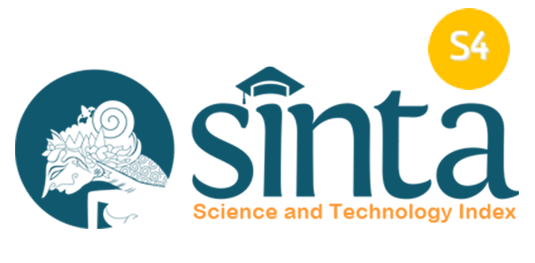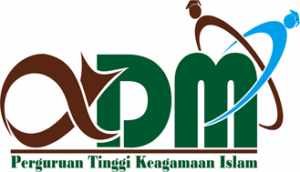Problem solving skill: Effectiveness on think pair share with comic
Abstract
The purpose of this study was to determine the effectiveness of the Think Pair Share with the comic of 7th grade students’ ability to solve mathematical problems in SMP 9 Yogyakarta. This type of research is an experiment with posttest-only-control design. The sample used in the study determined by cluster random sampling technique. The results of hypothesis testing using the t-test showed that tcount is greater than ttable, in other words, Think Pair Share learning with comic generates better mathematical problem solving skills to students than think pair share only. Furthermore, Think Pair Share with the comic is more effective when viewed from the ability to solve problems.
Keywords
Full Text:
PDFReferences
Acharya, B. R. (2017). Factors affecting difficulties in learning mathematics by mathematics learners. International Journal of Elementary Education, 6(2), 8-15.
Afifah, D. S. N., & Ningrum, R. L. (2018). Critical thinking of field dependent student’s in problem solving. International Journal on Teaching and Learning Mathematics, 1(1), 31–38.
Aisyah, P. N., Khasanah, S. U. N., Yuliani, A., & Rohaeti, E. E. (2018). Analisis kemampuan pemecahan masalah matematis siswa SMP pada materi segi empat dan segi tiga. JPMI: Jurnal Pembelajaran Matematika Inovatif, 1(5), 77–83. https://doi.org/https://doi.org/10.5281/zenodo.1405906
Amalia, K., Darhim, & Martadiputra, B. A. P. (2016). Peningkatan kompetensi strategis matematis siswa Sekolah Menengah Kejuruan (SMK) melalui strategi team-based learning. Infinity Journal, 5(1), 1–14.
Antika, L. T. (2018). The relationship between metacognition skills with the student’s achievement: The implementation of reading-concept map-think pair share (Remap TPS) Model. Jurnal Pena Sains, 5(1), 19-26.
Arends, R., & Kilcher, A. (2010). Teaching for student learning: Becoming an Accomplished teacher. New York: Taylor&Francis Group.
Awuah, J. B., Kwarteng, E., & Asuamah, S. Y. (2013). Perception of interest in mathematics among female teachers in teacher training colleges in Ghana. International Journal of Innovative Research and Development, 2(7), 397-402.
Baruah, T. D. (2018). E-learning as a medium for facilitating learners’ support services under open and distance learning: An evaluative study. In Technology for efficient learner support services in distance education (pp. 93-112). Springer, Singapore.
Bernard, M., Nurmala, N., Mariam, S., & Rustyani, N. (2018). Analisis kemampuan pemecahan masalah matematis siswa SMP Kelas IX pada Materi bangun datar. SJME (Supremum Journal of Mathematics Education), 2(2), 77–83.
BSNP. (2006). Peraturan Menteri pendidikan nasional Republik Indonesia no 22 tahun 2006 tentang standar isi untuk satuan dasar dan menengah. Jakarta: Mendiknas.
Buchori, A., & Setyawati, R. D. (2015). Development learning model of charactereducation through e-comic in elementary school. International Journal of Education and Research, 3(9), 369–386.
Budiyono. (2003). Metodologi penelitian pendidikan. Surakarta: UNS Press.
Bulut, M., Akçakın, H. Ü., & Kaya, G. (2016). The effects of GeoGebra on third grade primary students’ academic achievement in fractions. International Society of Educational Research, 11(2), 347–355.
Choi, E., Lindquist, R., & Song, Y. (2014). Effects of problem-based learning vs. traditional lecture on Korean nursing students’ critical thinking, problem-solving, and self-directed learning. Nurse Education Today, 34(1), 52–56. https://doi.org/10.1016/j.nedt.2013.02.012
Creswell, J. W. (2012). Educational research: Planning, conducting and evaluating quantitative and qualitative research. London: Pearson.
Creswell, J. W., & Creswell, J. D. (2017). Research design: Qualitative, quantitative, and mixed methods approaches. Los Angeles: Sage Publications, Inc.
Dringenberg, E., & Purzer, Ş. (2018). Experiences of first‐year engineering students working on ill‐structured problems in teams. Journal of Engineering Education, 107(3), 442-467.
Elliott, B., Oty, K., Mcarthur, J., & Clark, B. (2001). The effect of an interdisciplinary algebra/science course on students’ problem solving skills, critical thinking skills and attitudes towards mathematics. International Journal of Mathematical Education in Science and Technology, 32(6), 811–816.
Erozkan, A. (2013). The effect of communication skills and interpersonal problem solving skills on social self-efficacy. Kuram ve Uygulamada Egitim Bilimleri, 13(2), 739–745.
Fuad, N. M., Zubaidah, S., Mahanal, S., & Suarsini, E. (2017). Improving junior high schools’ critical thinking skills based on test three different models of learning. International Journal of Instruction, 10(01), 101–116.
Gazali, R. Y. (2016). Pembelajaran matematika yang bermakna. Math Didactic: Jurnal Pendidikan Matematika, 2(3), 181-190.
Hartsell, T., & Yuen, S. C. Y. (2006). Video streaming in online learning. AACE Journal, 14(1), 31-43.
Herbst, P., Chazan, D., Chen, C. L., Chieu, V. M., & Weiss, M. (2011). Using comics-based representations of teaching, and technology, to bring practice to teacher education courses. ZDM, 43(1), 91-103.
Huda, M. K. (2016). Penerapan Pembelajaran kooperatif tipe investigasi kelompok untuk meningkatkan kemampuan pemecahan masalah matematika siswa pada materi persamaan garis lurus. Infinity Journal, 5(1), 15–24.
Husna, Ikhsan, M., & Fatimah, S. (2013). Peningkatan kemampuan pemecahan masalah dan komunikasi matematis siswa sekolah menengah pertama melalui model pembelajaran kooperatif tipe Think-Pair-Share (TPS). Jurnal Peluang, 1(2), 81–92.
Indaryati, & Jailani. (2015). Pengembangan media komik pembelajaran matematika meningkatkan motvasi dan prestasi belajar siswa Kelas V. Jurnal Prima Edukasia, 3(1), 84–96.
Kristanti, F., Ainy, C., Shoffa, S., Khabibah, S., & Amin, S. M. (2018). Developing creative-problem-solving-based student worksheets for transformation geometry course. International Journal on Teaching and Learning Mathematics, 1(1), 13–23. https://doi.org/10.18860/ijtlm.v1i1.5581
Lin, M. H., Chen, H. C., & Liu, K. S. (2017). A study of the effects of digital learning on learning motivation and learning outcome. Eurasia Journal of Mathematics, Science and Technology Education, 13(7), 3553-3564.
Martyanti, A., & Suhartini. (2018). Etnomatematika: Menumbuhkan kemampuan berpikir kritis melalui budaya. Indomath: Indonesia Mathematics Edcuation, 1(1), 35–41.
Ozar, D. T. (2018). Identifying Learning Objectives and Assessing Ethics Across the Curriculum Programs. In Ethics Across the Curriculum—Pedagogical Perspectives (pp. 55-71). Springer, Cham.
Pardimin, & Widodo, S. A. (2016). Increasing skills of student in junior high school to problem solving in geometry with guided. Journal of Education and Learning, 10(4), 390–395.
Peter, E. E. (2012). Critical thinking: Essence for teaching mathematics and mathematics problem solving skills. African Journal of Mathematics and Computer Science Research, 5(3), 39–43.
Polya, G. (1973). How to solve it: A new aspect of mathematical method. New Jersey: Princeton University Press.
Putra, H. D., Herman, T., & Sumarmo, U. (2017). Development of student worksheets to improve the ability of mathematical problem posing. International Journal on Emerging Mathematics Education, 1(1), 1-10.
Saragih, S. (2006). menumbuhkembangkan berpikir logis dan sikap positif terhadap matematika melalui pendekatan matematika realistik. Jurnal Pendidikan dan Kebudayaan Departemen Pendidikan Nasional (551-565). Jakarta: Badan Penelitian dan Pengembangan Depdiknas.
Shadiq, F. (2004). Penalaran, pemecahan masalah dan komunikasi dalam pembelajaran matematika. Yogyakarta: PPPPTK Matematika.
Sugiyono. (2016). Metode penelitian pendidikan pendekatan kuantitatif, kualitatif, dan R&D. Bandung: Alfabeta.
Suwarto, & Purnami, A. S. (2018). Upaya meningkatkan pemahaman konsep matematika melalui hypothetical learning trajectory pada materi vektor. Indomath: Indonesia Mathematics Edcuation, 1(2), 69–76.
Tatalovic, M. (2009). Science comics as tools for science education and communication: A brief, exploratory study. Journal of Science Communication, 8(4), 1–17.
Toh, T. L., Cheng, L. P., Ho, S. Y., Jiang, H., & Lim, K. M. (2017). Use of comics to enhance students’ learning for the development of the twenty-first century competencies in the mathematics classroom. Asia Pacific Journal of Education, 37(4), 437-452.
Triyanto. (2009). Mendesain model pembelajaran inovatif dan progresif. Jakarta: Kencana.
Widodo, S. A. (2015). Keefektivan team accelerated instruction terhadap kemampuan pemecahan masalah dan prestasi belajar matematika siswa Kelas VIII. Kreano, Jurnal Matematika Kreatif-Inovatif, 6(2), 127–134.
Widodo, S. A. (2018). Selection of learning media mathematics for junior school students. Turkish Online Journal of Educational Technology - TOJET, 17(1), 154–160.
Widodo, S. A., Darhim, & Ikhwanudin, T. (2018). Improving mathematical problem solving skills through visual media Improving mathematical problem solving skills through visual media. Journal of Physics: Conf. Series, 948(1), 1–6.
Widodo, S. A., & Turmudi. (2017). Guardian Student thinking process in resolving issues divergence. Journal of Education and Learning, 11(4), 431–437.
DOI: https://doi.org/10.18860/ijtlm.v1i2.7181
Refbacks
- There are currently no refbacks.
Copyright (c) 2020 International Journal on Teaching and Learning Mathematics

This work is licensed under a Creative Commons Attribution-NonCommercial-ShareAlike 4.0 International License.
Indexed by :
.png)
.jpg)
.png)

.jpg)


